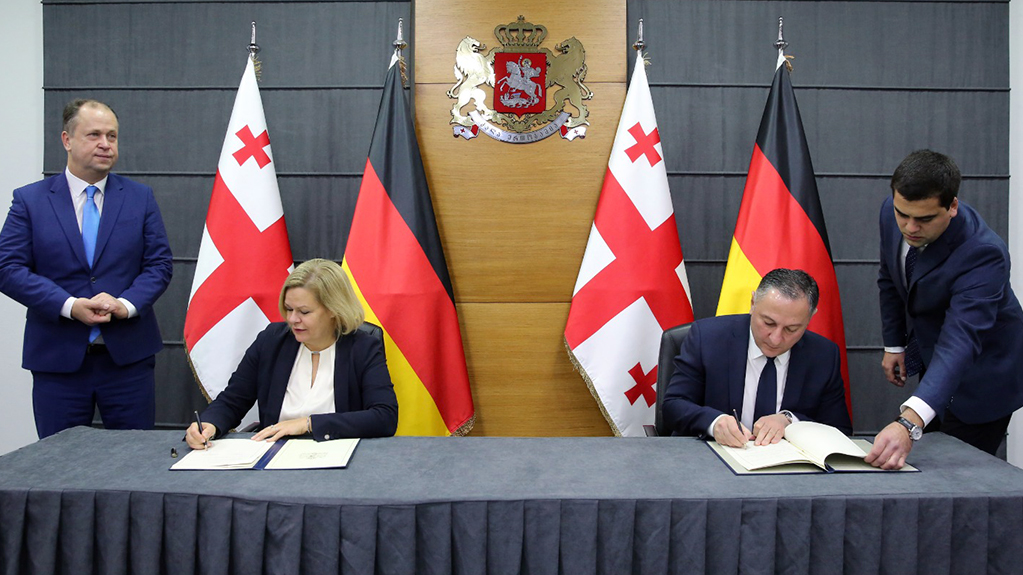An agreement was signed between Georgia and Germany, which provides for upshifting the fight against rampant illegal migration. According to the Federal Interior Minister of Germany, Nancy Faeser, who is on a visit in Tbilisi, an information campaign will be conducted to let Georgian citizens know that chances of obtaining asylum in Germany are low.
News
‘‘The process of attracting qualified labor and specialists will continue. We will bolster circular migration and work to create better employment opportunities for Georgian citizens in the German market.
We need very highly qualified workers, also, it is important in the educational sector to exchange students, scientists... We will strengthen all of this even further. Our agreement on migration will lead to taming unregulated migration in both countries,’’ said Nancy Faeser and emphasized the granting of the status of a safe country to Georgia by Germany in August of this year.
According to the Interior Minister of Georgia Vakhtang Gomelauri, after the signing of the agreement, obtaining work visas will be simplified.
"Information was twisted as if our fellow citizens will be expelled from there. This is false! Readmission has been carried out for years and will continue,’’ said Gomelauri.
According to the data of the European Union Asylum Agency (EUAA), from January to June of this year, 14,048 citizens of Georgia applied for asylum in the European Union. 40% of applications were filed in Germany, 28% - in France. The third most popular country is Italy, followed by Ireland, Greece and Belgium.
According to Deutsche Welle, 7,861 people were deported from Germany in the first half of 2023, which is 27% more than in the same period last year. Most of the deportees are 705 citizens of Georgia, 665 citizens of North Macedonia and 659 citizens of Afghanistan.















